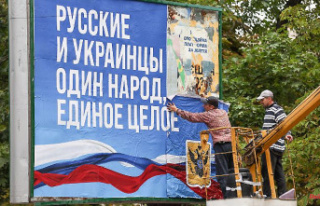Since the beginning of 2021, the IAEA has no longer been able to access surveillance data in Iran. Now the inspectors are publishing new figures on the nuclear program and are pushing for access to the facilities to be restored. However, this is proving to be difficult due to western sanctions as a result of the mass protests in the Islamic Republic.
According to the International Atomic Energy Agency, IAEA for short, the severely restricted monitoring of Iran's nuclear program is leading to increasingly inaccurate knowledge of activities in the Islamic Republic. "The longer the current situation lasts, the greater the uncertainty," emphasized IAEA boss Rafael Grossi. The agency has not been able to access data from its surveillance systems in Iran since early 2021, and last June it had to dismantle 27 cameras. Even with a return to the previous inspection mode, gaps in information would remain open, it said.
Despite the inspection problems, the IAEA released another quarterly report on Iran. Accordingly, the country has more than 62 kilograms of highly enriched uranium. According to experts, around 50 kilograms of this material are enough for a nuclear weapon if it were enriched a little higher to 90 percent. According to the report, Tehran has also continued to expand its enrichment facilities since September.
In addition, the head of the Iranian air force stated that it had developed a hypersonic missile that could "overcome all missile defense systems". A few days earlier, an Iranian rocket capable of launching satellites into space is said to have successfully completed a test flight. "All these announcements" fuel fears of a further escalation in the struggle over the Islamic Republic's nuclear program, commented IAEA chief Grossi.
However, it is not only the Iranian air force that is self-confident. With regard to the mass protests in the country, the commander of the Iranian ground forces warned: The army is ready to intervene alongside the police and the notorious Basij militia if asked to do so. The only reason for the previous reluctance is "that the supreme leader decided so".
Intelligence Minister Esmail Chatib is extending the threat to foreign supporters of the protests, especially Saudi Arabia and the West. Iran has "shown strategic patience" so far, but it cannot guarantee that it will remain so if hostilities against it continue.
Negotiations to restore the 2015 nuclear deal, which was supposed to limit Iran's nuclear program, have been on hold for months. Tehran has not approved the draft solution that has already been negotiated, with which US sanctions against Iran would be lifted and the agreed restrictions would be implemented again.
The recent US elections and the protest movement in Iran make the prospect of saving the nuclear pact even more remote. According to the US State Department, Washington's current focus is not on the nuclear pact but on supporting the Iranian demonstrators. The USA and the European Union, which is also involved in the nuclear negotiations, have imposed sanctions on Iran in response to the violent intervention against the protests.
The EU is working on further sanctions which, according to German Foreign Minister Annalena Baerbock, will be decided next week. "We stand by the men and women of Iran, not just today, but for as long as it is necessary," emphasized the Greens politician.












